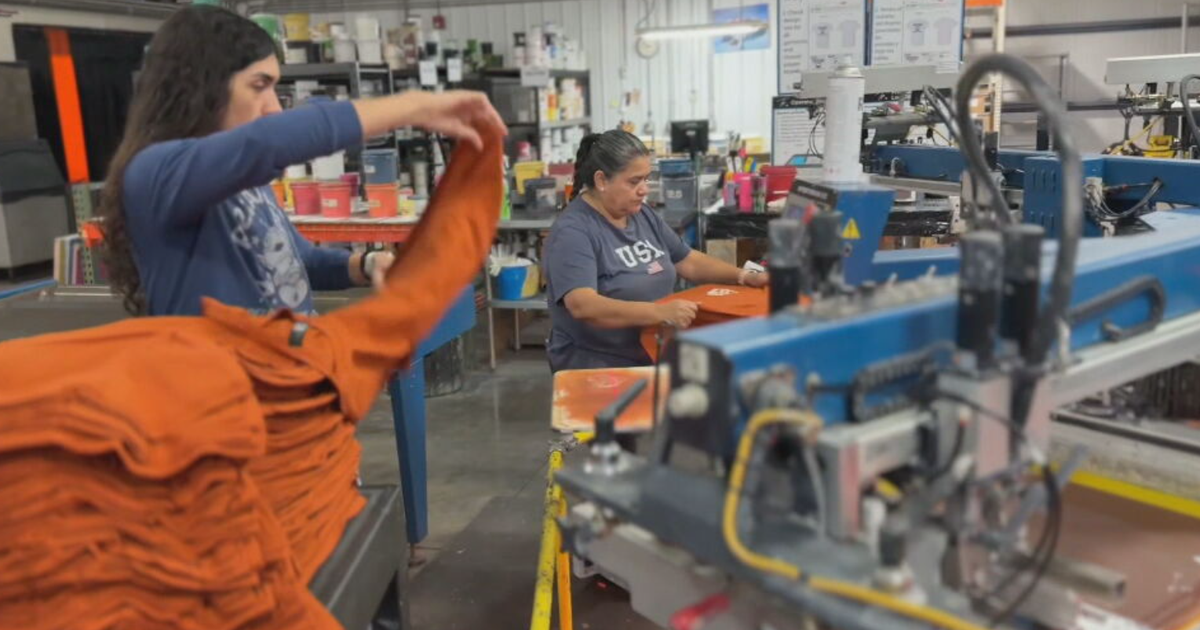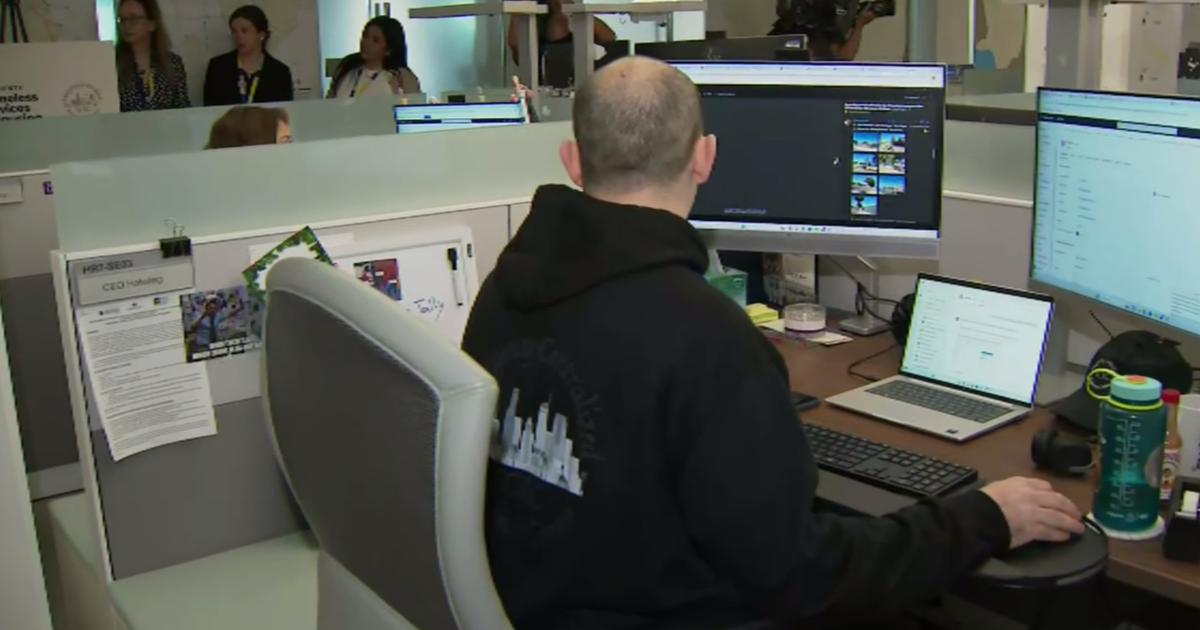4 Social Security mistakes that can cost you thousands of dollars. Here's what to know.
Social Security supports more than 70 million Americans, ranging from retirees to disabled people and children. But it's also an incredibly complex system, with an operations manual that is 20,000 pages long, covering a tangle of 2,700 rules that can easily trip up claimants and cost them tens of thousands of dollars in lost benefits.
Some of the pitfalls are detailed in a new book, "Social Security Horror Stories," by Boston University economist Laurence Kotlikoff and personal finance writer Terry Savage. In some cases, the errors aren't the fault of beneficiaries, but stem from the Social Security Administration's own missteps. Yet claimants have little recourse for fixing the problem or otherwise protecting themselves.
There's a lot at stake in improving the system, Kotlikoff told CBS MoneyWatch. Social Security is often a person's biggest financial asset aside from homeownership, and the steady stream of monthly income keeps millions of seniors from slipping into poverty. But the program can be opaque and, perhaps unintentionally, encourage certain choices that cause people to lose out on tens of thousand of dollars in benefits, Kotlikoff said.
"We probably have about 20% of retirees who are totally dependent on Social Security for their only source of income," he noted. "This is a big deal. You have to take this seriously, and you have to do your homework."
Kotlikoff, who has published academic research about Social Security and is the co-author of the best-selling "Get What's Yours: The Secrets to Maxing Out Your Social Security," said that the mistakes can range from claiming benefits too early to following the wrong advice, such as claiming both a survivors benefit and retirement benefit at the same time, which can also lead to a loss in future payouts.
He also cautions people against relying solely on the Social Security Administration for advice, because he and Savage have heard from people who were given wrong or misleading advice by SSA employees, leading to costly mistakes that can be difficult to impossible to fix. (For instance, if you decide you claimed too early, you only have 12 months to reverse the decision.)
"People really need to understand that you're out there on your own," Kotlikoff said.
The Social Security Administration said in a statement to CBS MoneyWatch that improving its business processes "to serve our customers better remains a top priority."
Here are four common mistakes that people often make in claiming Social Security, according to Kotlikoff.
Claiming too early
This may be the single biggest issue impacting Americans because Social Security allows people to begin collecting their benefits when they turn 62, or about five years before the full retirement age for most people. By claiming Social Security early, though, your monthly benefits will be shaved by 30%.
People can also wait to claim Social Security until they are 70, when they receive the maximum payout — about 76% higher than at age 62. But only about 6% of Americans wait until they turn 70 to claim Social Security.
Kotlikoff thinks the Social Security Administration may inadvertently nudge people into claiming too early by providing a life expectancy calculator and actuarial tables that give the average number of additional years you could live. He said people should claim Social Security based on the maximum number of years they could live — not the average.
"Taking an actuarial calculation is completely irrelevant to any one person," he said. "Think about homeowners insurance. People have one house, and they want to go look at the catastrophic outcome which is, it burns downs."
Added Kotlikoff, "They have one life and they want to look at the catastrophic outcome financially, which is they live to the maximum."
Claiming too early can cost you $182,000 in lost benefits, Kotlikoff estimated in a research paper published last year.
The "widow's scam"
Another mistake that can result in lost benefits is what Kotlikoff calls "the widow's scam," which usually stems from poor decisions about filing for benefits that can lead to lower payments.
One of the 12 types of benefits offered by Social Security is the survivors benefit, which is paid to widows, widowers and dependents of eligible workers. In the case of widows and widowers, they can file for Social Security payments based on their spouse's earnings, and claim as early as age 60.
But sometimes people mistakenly file for both survivor's benefits and their own retirement benefits, although the Social Security Administration will only pay one benefit, whichever is higher.
The problem comes if the survivor's benefit is higher because by claiming the retirement benefit at the same time, the widow or widower is locking in their retirement benefit at the age when they make that claim. That risks the person losing out on thousands of higher benefits they would have received if they waited until full retirement age, or even age 70, to claim.
"You go into Social Security and you say, 'Hey, I want my 76% higher check for the next possibly 30 years,'" Kotlikoff said. "And they say, 'No, look at our records here. You filed for both benefits, you checked off the box."
In that case, if it's been more than a year since they claimed their retirement benefits, it won't be possible to reverse that decision.
The "earnings test" scam
Another Social Security rule that can trip up older Americans is the so-called earnings test, which states that people who claim before their full retirement age and then continue to work will face a heavy tax if they earn above a fairly low income threshold.
In 2023, that "earnings test" is $21,240, which means people who collect Social Security before age 67 will get $1 deducted from their Social Security payments for every $2 they earn above that limit. That often dissuades older workers from continuing to work after they claim, given that they fear losing a chunk of income to this tax.
But what isn't widely known, Kotlikoff said, is something called the "adjustment of reduction factor," or ARF, which restores those lost benefits once the claimant reaches full retirement age.
"Know that it's a good thing to lose money to the earnings test because for every dollar you lose to the earnings test, you get about about roughly $1.20 back in benefits," Kotlikoff said. "But people aren't being told that, so they mistakenly think that going back to work just makes no sense because all they're doing is working for the government."
Of course, not everyone might be able to hold off, at least on a financial basis, for their benefits to be adjusted when they hit 67. But some people over 60 might make different decisions about working if they were aware of this issue, Kotlikoff noted.
The overpayment trap
This issue impacts about 1 million Social Security recipients a year, and can cause financial hardship and stress, as reported by "60 Minutes" earlier this month.
This happens when Social Security overpays beneficiaries, who typically find out years later when the Social Security Administration sends a letter demanding repayment — even if it was not their fault.
Sometimes the fault sits with the Social Security Administration, as detailed in this 2022 report from the Social Security Administration's Inspector General that found employees sometimes enter the wrong information into SSA's systems or incorrectly calculate benefits.
The Social Security Administration also notes that overpayments can happen for many reasons, most often when a beneficiary doesn't report earnings or other changes that can impact their benefits.
But if this happens, the recipient will have to pay up, as "60 Minutes" detailed. And if you want to appeal, it can take months or years to clear up, with no guarantee that it will be resolved in your favor.
That's why Kotlikoff urges people to keep careful records of their interactions with the Social Security Administration, as well as the information they send to the agency. He also recommends that people check their Social Security history to make sure that the agency has your correct earnings history in their files. You can do this by creating a "My Social Security" account on the agency's site, where you can look through your past income to check for accuracy.
In a statement to CBS MoneyWatch, the Social Security Administration said, "We continually strive to improve stewardship of our programs and reduce improper payments. While staffing losses and resource constraints have challenged our service delivery, our payment accuracy rates remain very high."
The agency also noted it is responsible to taxpayers "to be good stewards of the trust funds," referring to the financial accounts that hold money for its programs. "Each person's situation is unique, and we handle overpayments on a case-by-case basis," it added.
"If you start seeing that you're getting overpaid, you should set that money aside because they're going to come back for it at some point," Kotlikoff said. With 1 million people overpaid every year and about 70 million Social Security recipients, "Your chance of being one of those people is pretty high."







